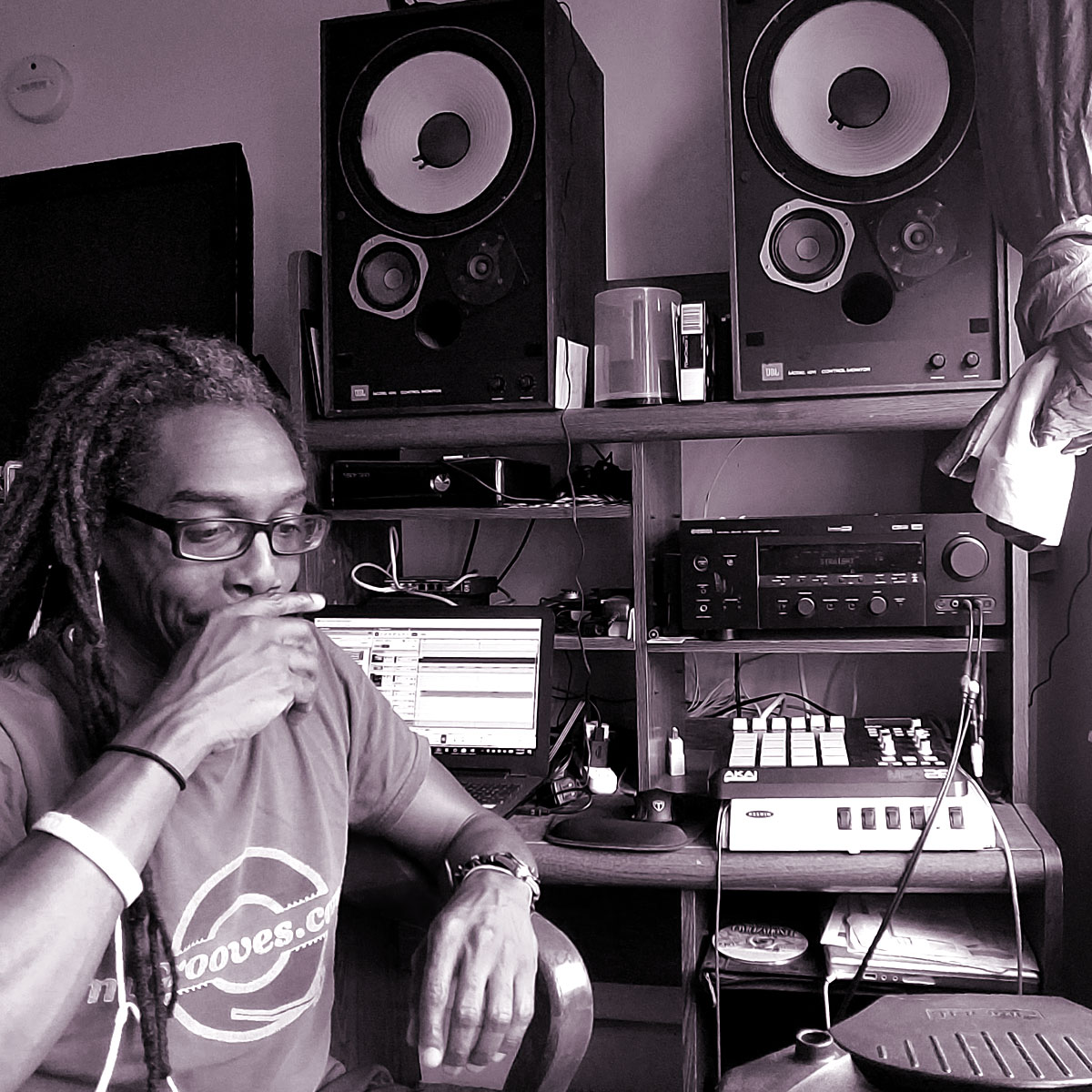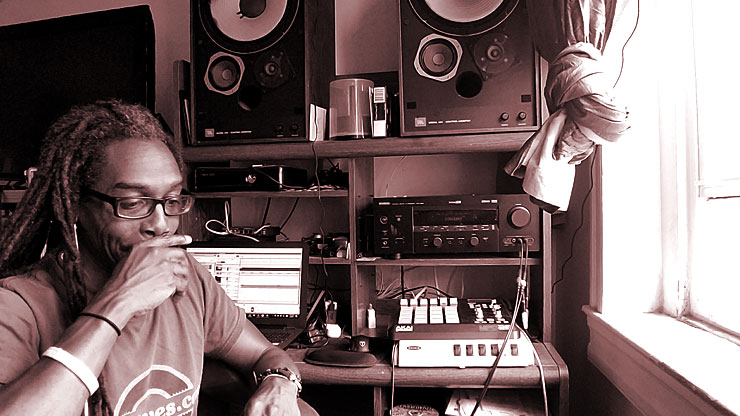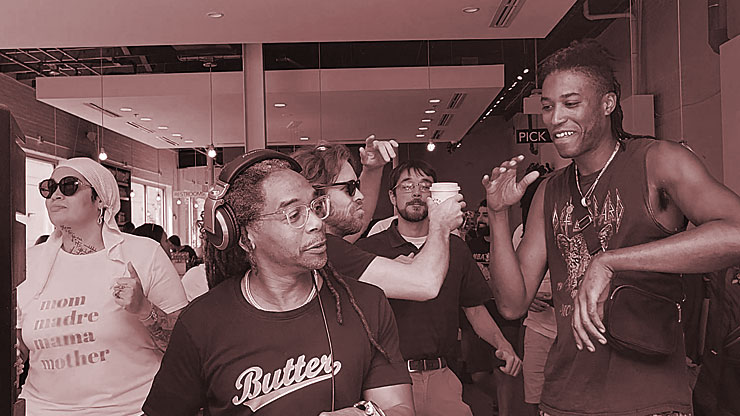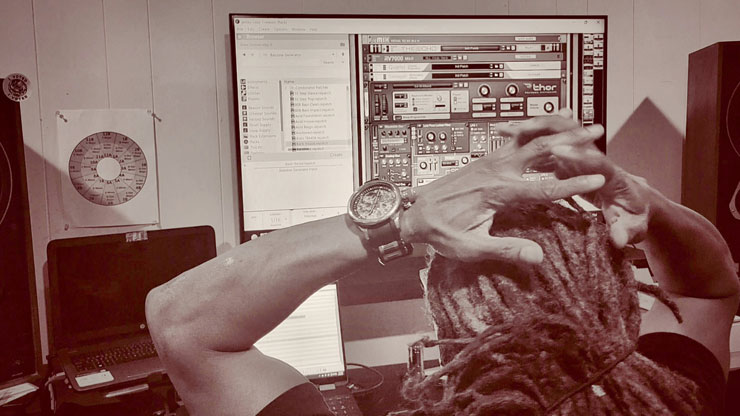Every year or two in the DJ and dance music world, this irritating debate raises its head concerning whether this or that DJ is talented based on whether they are also a producer or not.
The debate is tiring?

Confusing the Radio DJ with the Performance DJ
In my opinion, it seems to arise from confusing the work of most radio DJs with those that are performance DJs. The radio DJ plays music, talks about the music, in the old days before radio consolidation into a handful of corporations had much more programing power–that is, deciding what to play and what to ignore, take requests, an on-air personality. Your typical request DJ, bar DJ, and wedding DJ is a reflection of the radio DJ.

The performance DJ comes from a different place. Born out of Hip-hop (NYC) in the 70s, House Music (from Chicago) in the 80s, and Techno (from Detroit) also in the 80s, the performance DJ took devices that were tools in the studio, from the radio DJ, from also the producer and sound engineer, and turned them into instruments. Devices like the turntable, the 808 and 909 drum machine, the 303 bass player, the mixer, which were designed for stand-ins for studio musicians, through experimentation, were now front and center in production and in performance.
A Producer From The Beginning
The performance DJ was a producer from the beginning. That Hip-Hop DJ was playing the ‘get-down’ part of the song, while rewinding it on the other deck. That is re-arranging the song and therefore a production task being used as a performance feature. That House and Techno DJ was also back spinning records to repeat a certain part of the song, while lining it up with a beat laid down on an 808 or 909. The 303, the mixer knobs, and sliders were now being used live and in innovative ways. These devices were all being used outside of their intended designs. These are production skills being used as performance features.

Those DJs were also building beats or loops at home and test driving them at the club. They would see how it would work, go home to tweak it, and bring it back out again at the club. They may even use it across several different records, thus creating several iterations of the beat or loop. This gave way to the beat or loop being built enough to stand on its own; the feature, not the backdrop. Afterall, the inspiration in the culture of dance music is just that, dance, for hours and hours.
In today’s environment, these roles of producer and DJ are not mutually exclusive or binary. Rather depending on the person, where and how they learned their craft, they may embody many of the elements of either of these roles. The equipment–digital turntables with features that used to take racks of very expensive hardware, digital audio workstations (DAWs) which likewise would require very expensive hardware and virtually limitless instruments, even karaoke machines–further blends the boundaries of DJ and producer or engineer.
To put down a few studio producers who happened to be average performance DJs to elevate oneself as different is a bad look
If you are in the camp of proclaiming you are not a producer and yet you have done scratching, used an equalizer, looped a track, chopped a track, use a host of effects (FX) like echo, flanger, ring, even cross-fading and up-fading, you are actually producing on the fly. These skills are a part of the toolbox of what a producer does. The only difference for the producer, it’s happening in a studio rather than happening live on stage.
To put down a few studio producers who happened to be average performance DJs to elevate oneself as different is a bad look. We are just using most of the same skill sets in different environments, some live, and others back at home in our bedrooms. The converse is true as well. If you are a DJ more invested in producing, putting down DJs who don’t is also lame.

The Pop/EDM world in an effort to make something marketable often develops shortcuts that end up hiding the full story, thus the culture. Sometimes this is by accident; sometimes it’s not.
Like Hip-hop, House, Techno… It’s in my DNA
Me? I was born in Hip-hop, House, and Techno culture. Producing and experimentation is as much part of my style as what most refer to as the DJing part. I endeavor to always try my hand at producing and remixing for it was part of what excited me about this music since I was introduced to it in the late 70s and early 80s. Like Hip-hop, House, Techno, and most of the foundations of all the music generally referred to as EDM, it’s in my DNA.



